-
 Bitcoin
Bitcoin $115100
1.27% -
 Ethereum
Ethereum $3675
2.71% -
 XRP
XRP $2.995
1.45% -
 Tether USDt
Tether USDt $1.000
0.02% -
 BNB
BNB $769.8
2.64% -
 Solana
Solana $168.0
3.25% -
 USDC
USDC $0.9999
-0.01% -
 TRON
TRON $0.3371
1.48% -
 Dogecoin
Dogecoin $0.2051
3.36% -
 Cardano
Cardano $0.7394
2.30% -
 Hyperliquid
Hyperliquid $38.15
0.42% -
 Stellar
Stellar $0.3966
-0.36% -
 Sui
Sui $3.486
2.93% -
 Chainlink
Chainlink $16.72
2.52% -
 Bitcoin Cash
Bitcoin Cash $568.0
4.36% -
 Hedera
Hedera $0.2440
2.59% -
 Ethena USDe
Ethena USDe $1.001
0.04% -
 Avalanche
Avalanche $22.16
2.06% -
 Litecoin
Litecoin $119.1
-0.73% -
 UNUS SED LEO
UNUS SED LEO $8.991
0.04% -
 Toncoin
Toncoin $3.232
-0.39% -
 Shiba Inu
Shiba Inu $0.00001233
2.82% -
 Uniswap
Uniswap $9.717
2.53% -
 Polkadot
Polkadot $3.664
1.85% -
 Dai
Dai $1.000
0.01% -
 Monero
Monero $281.2
-3.89% -
 Bitget Token
Bitget Token $4.350
1.55% -
 Cronos
Cronos $0.1428
5.07% -
 Pepe
Pepe $0.00001050
3.68% -
 Aave
Aave $262.3
3.54%
What are the steps for ordinary people to invest in Bitcoin? How to buy more cost-effectively?
To invest in Bitcoin, understand its potential, set a strategy, choose a secure exchange, and consider cost-effective buying methods like DCA and low-fee platforms.
Jun 04, 2025 at 03:14 am

Investing in Bitcoin has become increasingly popular among ordinary people looking to diversify their investment portfolios. However, navigating the world of cryptocurrency can be daunting for beginners. This article will guide you through the essential steps to invest in Bitcoin and provide tips on how to buy it more cost-effectively.
Understanding Bitcoin and Its Potential
Before diving into the investment process, it's crucial to understand what Bitcoin is and why it might be a worthwhile investment. Bitcoin is a decentralized digital currency that operates on a blockchain, a distributed ledger technology. It was created in 2009 as a response to the financial crisis, aiming to provide an alternative to traditional banking systems. Its potential lies in its limited supply (capped at 21 million coins) and its increasing acceptance as a form of payment and store of value.
Setting Up Your Investment Strategy
To invest in Bitcoin effectively, you need to establish a clear investment strategy. Determine how much you are willing to invest and what your risk tolerance is. Bitcoin can be highly volatile, so it's important to only invest money you can afford to lose. Consider your investment horizon; are you looking for short-term gains or long-term growth? Understanding these factors will help you make informed decisions.
Choosing a Cryptocurrency Exchange
The next step is to select a reputable cryptocurrency exchange where you can buy Bitcoin. Some popular exchanges include Coinbase, Binance, and Kraken. When choosing an exchange, consider the following factors:
- Security: Look for exchanges with strong security measures, such as two-factor authentication (2FA) and cold storage for funds.
- Fees: Compare the trading fees and withdrawal fees of different exchanges to find the most cost-effective option.
- User Interface: A user-friendly interface can make your trading experience smoother, especially if you're a beginner.
- Regulation: Ensure the exchange is compliant with local regulations to protect your investments.
Creating and Securing Your Account
Once you've chosen an exchange, you'll need to create an account. Here are the steps to set up and secure your account:
- Sign up: Visit the exchange's website and click on the sign-up or register button. Fill in your personal information, including your name, email address, and a strong password.
- Verify your identity: Most exchanges require you to complete a Know Your Customer (KYC) process, which involves submitting a government-issued ID and proof of address.
- Enable two-factor authentication (2FA): Go to your account settings and enable 2FA for an additional layer of security. You can use an authenticator app like Google Authenticator or Authy.
- Set up withdrawal addresses: If you plan to move your Bitcoin to a personal wallet, add your wallet address to your exchange account for easy withdrawals.
Depositing Funds and Buying Bitcoin
With your account set up, you can now deposit funds and buy Bitcoin. Here's how:
- Deposit funds: Navigate to the deposit section of the exchange and select your preferred payment method. This could be a bank transfer, credit/debit card, or even PayPal, depending on the exchange. Follow the instructions to complete the deposit.
- Buy Bitcoin: Once your funds are available, go to the trading section and select the Bitcoin trading pair (e.g., BTC/USD). Enter the amount of Bitcoin you want to buy and review the transaction details, including the total cost and any fees. Confirm the purchase to complete the transaction.
Storing Your Bitcoin Safely
After buying Bitcoin, it's essential to store it securely. While you can leave your Bitcoin on the exchange, it's generally safer to transfer it to a personal wallet. There are several types of wallets to choose from:
- Hardware Wallets: These are physical devices that store your Bitcoin offline, offering the highest level of security. Popular options include Ledger and Trezor.
- Software Wallets: These are applications installed on your computer or smartphone. Examples include Exodus and Electrum.
- Paper Wallets: These involve printing your private keys on a piece of paper, which can be a secure way to store Bitcoin if done correctly.
To transfer your Bitcoin to a wallet, follow these steps:
- Generate a wallet address: Open your chosen wallet and generate a new address.
- Initiate a withdrawal: Go back to your exchange account and initiate a withdrawal to the wallet address you just generated. Enter the amount of Bitcoin you want to withdraw and any required transaction fees.
- Confirm the transaction: Review the withdrawal details and confirm the transaction. The Bitcoin will be transferred to your wallet, and you'll receive a confirmation once the transaction is complete.
Buying Bitcoin More Cost-Effectively
To buy Bitcoin more cost-effectively, consider the following strategies:
- Dollar-Cost Averaging (DCA): Instead of investing a lump sum, spread your investment over time by buying a fixed amount of Bitcoin at regular intervals. This can help you mitigate the impact of volatility and potentially lower your average purchase price.
- Using Low-Fee Exchanges: As mentioned earlier, compare the fees of different exchanges and choose one with the lowest fees to save on costs.
- Timing the Market: While it's challenging to predict market movements, some investors try to buy Bitcoin during dips in the market. Monitor price trends and consider buying when prices are lower.
- Avoiding High-Premium Payment Methods: Some payment methods, like credit cards, may come with higher fees. Opt for bank transfers or other low-cost methods to save on transaction fees.
Monitoring and Managing Your Investment
Once you've invested in Bitcoin, it's important to monitor and manage your investment. Keep an eye on market trends and news that could affect Bitcoin's price. Many investors use tools like price alerts and portfolio trackers to stay informed. Additionally, consider rebalancing your portfolio periodically to maintain your desired asset allocation.
Frequently Asked Questions
Q: Can I buy Bitcoin without using a cryptocurrency exchange?
A: Yes, you can buy Bitcoin through peer-to-peer (P2P) platforms like LocalBitcoins or through Bitcoin ATMs. However, these methods may come with higher fees and less security compared to reputable exchanges.
Q: How much Bitcoin should I buy as a beginner?
A: As a beginner, it's advisable to start small. Consider investing an amount you're comfortable with losing, given Bitcoin's volatility. Many beginners start with a small percentage of their overall investment portfolio, such as 1-5%.
Q: Is it necessary to use a hardware wallet for storing Bitcoin?
A: While not strictly necessary, using a hardware wallet is highly recommended for long-term storage due to its enhanced security features. If you're holding a significant amount of Bitcoin or planning to store it for an extended period, a hardware wallet is the safest option.
Q: Can I lose all my money investing in Bitcoin?
A: Yes, it's possible to lose all your money investing in Bitcoin, as with any investment. The cryptocurrency market is highly volatile, and prices can fluctuate dramatically. It's crucial to only invest what you can afford to lose and to diversify your investment portfolio to mitigate risk.
Disclaimer:info@kdj.com
The information provided is not trading advice. kdj.com does not assume any responsibility for any investments made based on the information provided in this article. Cryptocurrencies are highly volatile and it is highly recommended that you invest with caution after thorough research!
If you believe that the content used on this website infringes your copyright, please contact us immediately (info@kdj.com) and we will delete it promptly.
- HashFlare Founders Face the Music: Jail Time Looms?
- 2025-08-07 14:30:12
- Pepeto's Pounce: Meme Coin Mania Meets Blockchain Infrastructure
- 2025-08-07 15:10:12
- Parataxis, SPAC Merger, and Bitcoin Treasury: A New York Minute on Crypto's Latest Moves
- 2025-08-07 15:30:12
- Toshi on Binance.US: A Memecoin's Big Break
- 2025-08-07 14:30:12
- Bitcoin, SPAC Mergers, and Parataxis: A New Yorker's Take on Crypto's Wall Street Moment
- 2025-08-07 14:50:27
- Bitcoin, Collateral, and Loan Strategies: A New York Minute on the Future of Finance
- 2025-08-07 14:50:27
Related knowledge
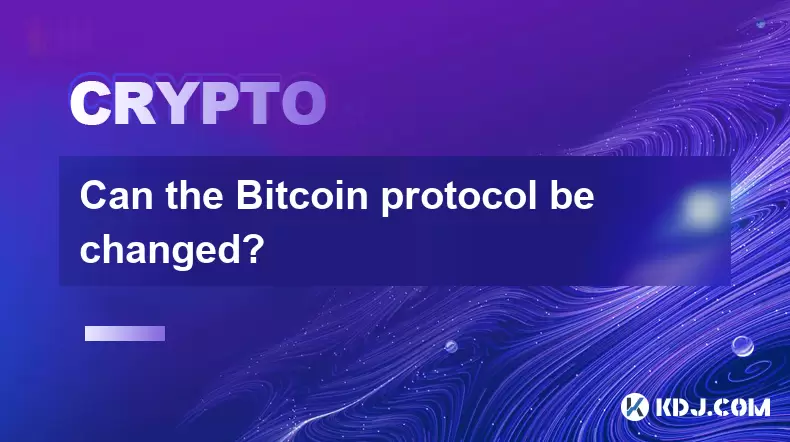
Can the Bitcoin protocol be changed?
Aug 07,2025 at 01:16pm
Understanding the Bitcoin ProtocolThe Bitcoin protocol is the foundational set of rules that govern how the Bitcoin network operates. It defines every...
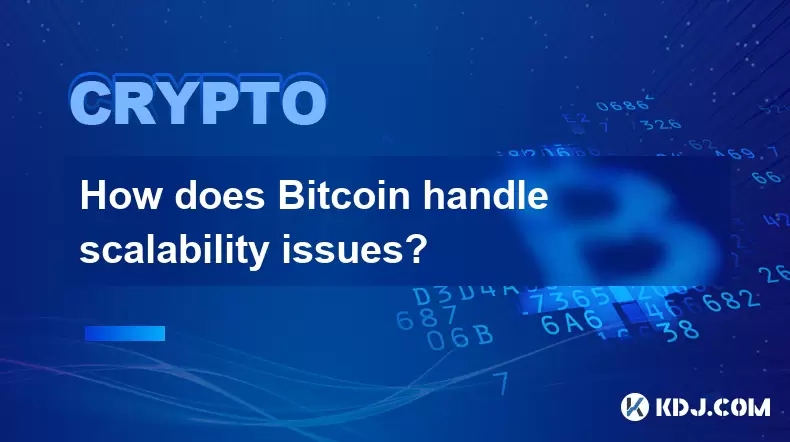
How does Bitcoin handle scalability issues?
Aug 07,2025 at 10:54am
Understanding Bitcoin’s Scalability ChallengeBitcoin’s design prioritizes decentralization, security, and immutability, but these principles come with...
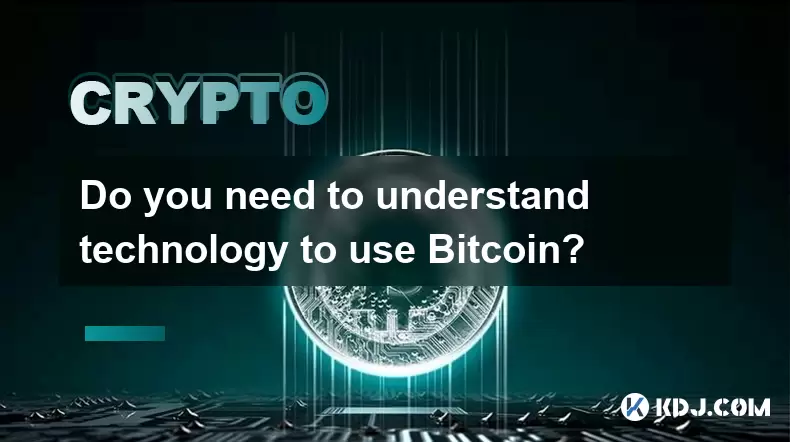
Do you need to understand technology to use Bitcoin?
Aug 07,2025 at 06:17am
Understanding the Basics of BitcoinTo engage with Bitcoin, one does not need a deep understanding of the underlying technology, much like how individu...
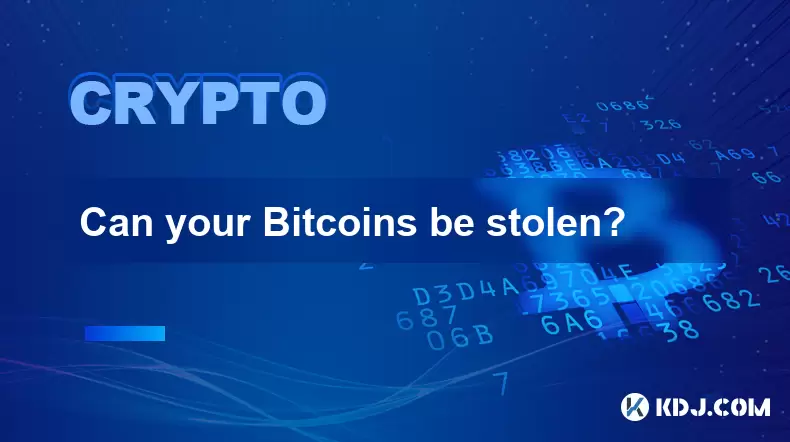
Can your Bitcoins be stolen?
Aug 07,2025 at 03:28am
Understanding the Security of Bitcoin OwnershipThe decentralized nature of Bitcoin means that no central authority controls the network, placing the r...
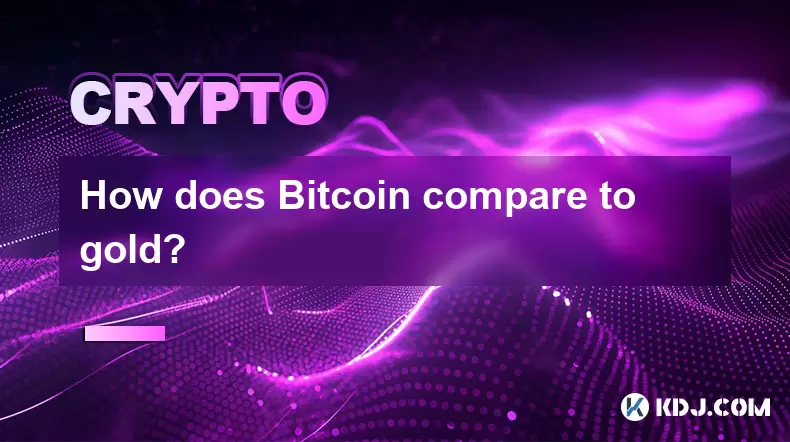
How does Bitcoin compare to gold?
Aug 07,2025 at 03:18am
Historical Context and Origins of Bitcoin and GoldUnderstanding the comparison between Bitcoin and gold begins with their origins and historical roles...
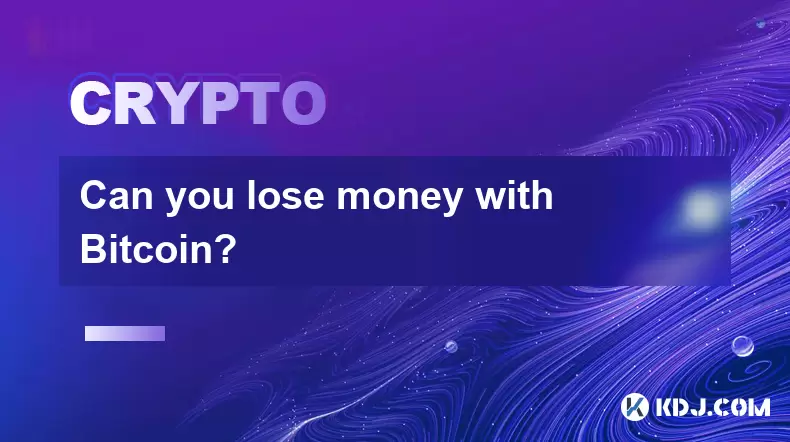
Can you lose money with Bitcoin?
Aug 07,2025 at 07:49am
Understanding the Volatility of BitcoinBitcoin is known for its extreme price volatility, which is one of the primary reasons investors can lose money...

Can the Bitcoin protocol be changed?
Aug 07,2025 at 01:16pm
Understanding the Bitcoin ProtocolThe Bitcoin protocol is the foundational set of rules that govern how the Bitcoin network operates. It defines every...

How does Bitcoin handle scalability issues?
Aug 07,2025 at 10:54am
Understanding Bitcoin’s Scalability ChallengeBitcoin’s design prioritizes decentralization, security, and immutability, but these principles come with...

Do you need to understand technology to use Bitcoin?
Aug 07,2025 at 06:17am
Understanding the Basics of BitcoinTo engage with Bitcoin, one does not need a deep understanding of the underlying technology, much like how individu...

Can your Bitcoins be stolen?
Aug 07,2025 at 03:28am
Understanding the Security of Bitcoin OwnershipThe decentralized nature of Bitcoin means that no central authority controls the network, placing the r...

How does Bitcoin compare to gold?
Aug 07,2025 at 03:18am
Historical Context and Origins of Bitcoin and GoldUnderstanding the comparison between Bitcoin and gold begins with their origins and historical roles...

Can you lose money with Bitcoin?
Aug 07,2025 at 07:49am
Understanding the Volatility of BitcoinBitcoin is known for its extreme price volatility, which is one of the primary reasons investors can lose money...
See all articles

























































































